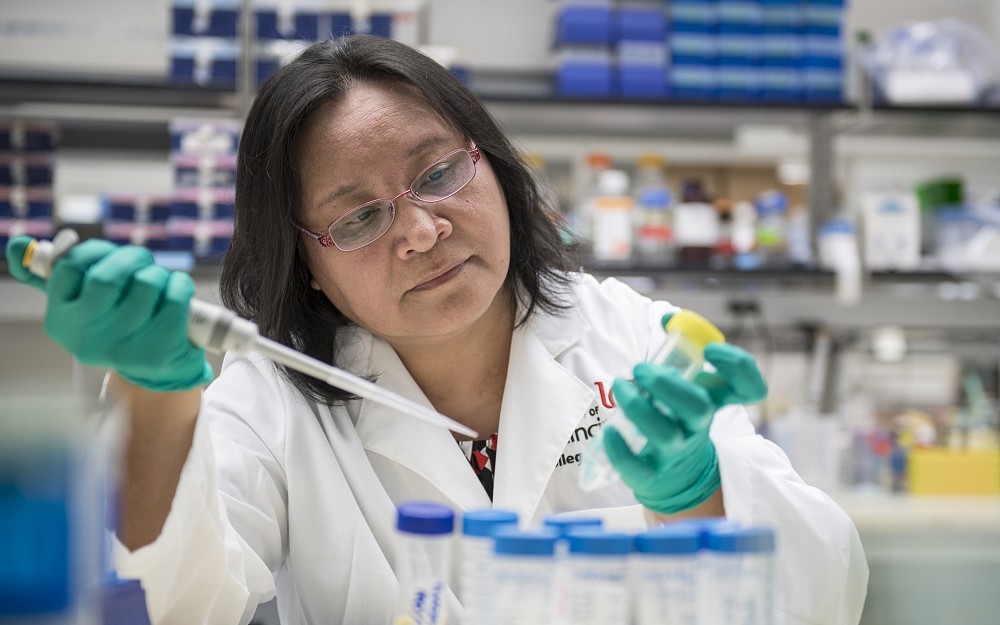
Research Examines Impact of FDA Approved Drugs in LAM Treatment Strategies
Scientists at the University of Cincinnati (UC) are conducting research targeting prostaglandin biosynthesis and action in lymphangioleiomyomatosis (LAM). This research will examine the growth of tumors and death of lung cells in response to excessive levels of prostaglandins, and test the efficacy of Food and Drug Administration (FDA)-approved drugs singularly or in combination with the drug sirolimus on inducing tumor regression in animal models of LAM. This study could lead to similar clinical trials.
The focus of this research is on biological functions of prostaglandin molecules, and the impact of the use of aspirin as a singular treatment or in combination with sirolimus on tumor growth. Sirolimus is an FDA-approved drug that suppresses cell growth in LAM patients and is currently the first-line treatment option for most LAM patients. Jane Yu, PhD, associate professor in the Division of Pulmonary, Critical Care and Sleep Medicine in the Department of Internal Medicine at the UC College of Medicine, is the principal investigator of the study.
"The primary goal of this research is to understand how prostaglandin biosynthesis is proceeding in abnormal LAM tumor cells in the lung and to see if we can target this pathway to benefit patients with LAM, says Yu. "This research will lay the foundation for patients with LAM taking aspirin to manage their phenotype or abnormalities in the future.
LAM is a rare but serious lung disease that occurs primarily in women of childbearing age. LAM is a low-grade tumor in which abnormal tumor cells grow out of control and spread to restricted areas in the body, including the lungs, kidneys, lymph nodes, blood vessels and lymphatics.
Yu says prostaglandin molecules are important lipids since they mediate many signals to different cells to initiate normal cell function as well as abnormalities. Yus earlier work at the Brigham and Womens Hospital in Boston focused on prostaglandin biosynthesis in kidney abnormalities, not in LAM. Yu and the research team she worked with focused on this category of molecules since aspirin can be used to treat diseases involved with prostaglandin-driven manifestation.
"If we know that prostaglandin molecules are important to promote the death or life of cells, the related question examines which FDA-approved drugs can be used to interfere with the consequence of that drug treatment, Yu says.
The research is funded by the National Heart, Lung, and Blood Institute (R01HL138481) in a three-year renewable grant.
Related Stories
Can new rules in Ohio address a pharmacy staffing shortage and...
May 17, 2024
The University of Cincinnati's Michael Hegener joined WVXU's Cincinnati Edition to discuss recent rules released by the Ohio Board of Pharmacy designed to address pharmacy staffing.
Is ketamine the answer to treatment-resistant depression?
May 16, 2024
The University of Cincinnati's Stephen Rush joined WVXU's Cincinnati Edition to discuss the use of ketamine and esketamine to treat treatment-resistant depression.
UC study: Severe ischemic strokes rare in total patient...
May 15, 2024
The University of Cincinnati’s Yasmin Aziz will present research at the European Stroke Organisation Conference that found severe ischemic strokes with the most severe damage are rare in the total stroke patient population.
